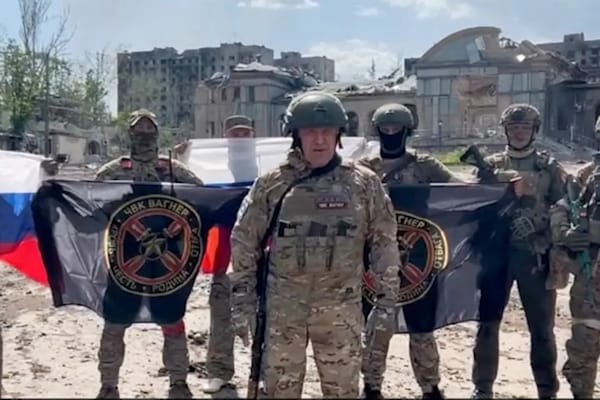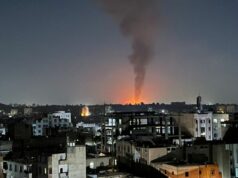On June 11, Nepal Press ran an article explaining how several Nepalese had joined the Russian military following President Vladimir Putin’s May 16, 2023 approval of a bill allowing foreigners who have served in the Russian army for one year to obtain Russian citizenship.
Birat Anupam, the senior journalist who wrote the article, tracked down a couple of Nepali youngsters who had posted pictures and videos on their social media feeds claiming they had easily joined the Russian forces owing to this new bill.
In a subsequent June 17 article for The Diplomat, a Washington DC based media house, Anupam said that while official numbers were difficult to obtain, after Putin’s May 16 bill, “… hundreds of Nepali youths have joined Russian forces as contract soldiers. Some of them are retired from the Nepal Army.”
“Previously they would look for Russian language proficiency. Now English is also okay for it,” he quoted a retired Nepali soldier who had worked a guard in Dubai before coming to Moscow on a tourist visa and ‘joined the army at a Russian recruitment center,’ as saying.
“Unemployment, low pay, and lack of vacancies in Nepal’s own military are other factors driving Nepali youths out of Nepal to enlist with foreign forces,” the article said.
Neither of these articles referred to either Gurkhas, reputed to be among the fiercest warriors on planet, or the Wagner Group, a Russian mercenary outfit recently in the news following its leader Yevgeny Prigozhin’s aborted coup attempt against Putin.
“I don’t know, but it doesn’t align with Wagner’s modus operandi,” Andrew Korybko, a Moscow-based American political analyst and journalist, told this correspondent. “They hire translators to help their operations on the ground in African and Arab countries, not to coordinate between members of their own group. Reported foreign recruits like Afghans (no confirmation just according to the media) that fight in the Special Military Operation don’t need to speak Russian, but Wagner isn’t operating there anymore so it’s discordant with how they work.”
Brigadier General Dr Keshar Bahadur Bhandari, (Retd), who’s the General Secretary of the Nepal Institute of Strategy Study, drew a distinction between Nepalis and Gurkhas.
“The term Gurkha is applicable mainly to the soldiers of Nepali origin serving in British and Indian army and is a misnomer for all the Nepali people,” he argued, pointing out that “Only a few ethnic Nepali tribes are real Gurkhas, and thus, while all Gurkhas are Nepali by origin, not all Nepali are Gurkhas.”
He was also sceptical about reports that the Chinese were planning to raise their own Gurkha regiments.
Other analysts pointed out that even though the Gurkhas were famous for their fierceness and bravery in battle, the Wagner Group’s reputation for cruelty and barbarism was inimical with the Gurkha mentality. “They are warriors, not sadists,” said one. “Therefore, such reports not only expose the ineptness or worse of the editors involved, they also insult and denigrate the valour of the Gurkhas, who take immense pride in their professionalism and are known to be kind and god-fearing in their personal lives.”
Also see:
https://bharatshakti.in/india-nepal-and-the-gorkha-connection/
https://bharatshakti.in/recruitment-of-gorkhas-from-nepal-to-continue-under-agnipath-scheme-mea/
https://bharatshakti.in/army-chief-in-nepal-to-boost-defence-ties/
In a career spanning three decades and counting, Ramananda (Ram to his friends) has been the foreign editor of The Telegraph, Outlook Magazine and the New Indian Express. He helped set up rediff.com’s editorial operations in San Jose and New York, helmed sify.com, and was the founder editor of India.com.
His work has featured in national and international publications like the Al Jazeera Centre for Studies, Global Times and Ashahi Shimbun. But his one constant over all these years, he says, has been the attempt to understand rising India’s place in the world.
He can rustle up a mean salad, his oil-less pepper chicken is to die for, and all it takes is some beer and rhythm and blues to rock his soul.
Talk to him about foreign and strategic affairs, media, South Asia, China, and of course India.





